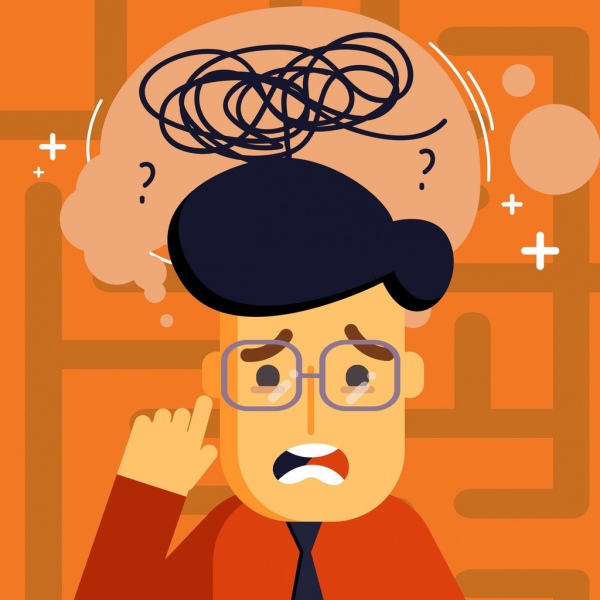Conscience is a non-linear term, at least in mind it wasn’t. Exemplifying a multitude of definitions and interpretations this word is fairly loose, however as time went on, I noticed that one theme remained constant. That theme was awareness, and not just being conscious of our surroundings but also our minds. After struggling to investigate the meaning of this word, I reached a definition that I believed encapsulated its main idea. Conscience can be defined as the mental step where the individual is aware of one’s positive or negative intentions of themselves and others around them. I did not reach this definition with just one source though and experiential learning and self-reflection helped me gain insight into the blurred lines of this word.

Having conscience encompasses the ability to see the bad and the good and what lies in between. It’s like a political debate where both candidates scream at you convincing you to chose a side. This conscience cannot be reached by one individual though. “To be curious about how someone else interprets things we have to be willing to admit that we’re not capable of figuring out things alone” (Wheatley 2). Of course, this quote was quite perplexing to me. It appeared that Wheatley was telling readers to have self-doubt about their approach towards thinking. This was untrue and after pondering upon her language she was actually providing guidance into how one can pursue that critical mindset to reach conscience. She was teaching others like me to embark on this journey to conscience with help. Over the summer I worked a retail job where many senior citizens were employed. With recent developments in the healthcare issue of the U.S., I never understood the impact it would have on individuals around me because of the Northbrook bubble of privilege. During one of my shifts, I talked to a senior co-worker who complained about the fact that she had to work because of her healthcare situation. She couldn’t cover her husband’s medical expenses. This disturbed me as these were the people shown on the news, the ones that were being affected as a result of the era we live in. This interaction helped me grasp what having a conscience was though, and in the light of Wheatley’s words I was figuring this out with the help of another individual. Just because one obtains conscience does not necessarily mean it will be positive though. “You are a madman. You are insane with egotism. […] A demon who cares more for the purity of a public bath than the lives of his wife and children” (Miller 81). Hovstad’s words were quite harsh here, evident by the word “demon” used to describe Tom. Initially presented as this glorious unbiased individual, Hovstad’s conscience evolved after hearing both sides of the argument at the town hearing. While the subject of his conflict may not have been the same, my interaction with my co-worker was reminiscent of what he experienced. I say this in that conscience was obtained with the help of others. Yes, an awareness of one’s surroundings may stimulate a critical mindset, yet it doesn’t qualify as conscience unless another individual or group of people will assist in suppressing the egocentric tendencies of our human nature.

Why should we change our viewpoints? Good question. The answer. We’re lazy. A problem in our interpretation of conscience is that individuals who seek to gain it push away change and/or have false perceptions of themselves. “We weren’t trained to admit we don’t know. Most of us were taught to sound certain and confident to state our opinion as if it were true” (Wheatley 1). We’re predisposed to think confidently of ourselves and while it’s not wrong to have confidence, egotism emerges. “We feel our own pain; we don’t feel the pain of others. We think our own thoughts; we do not think the thoughts of others” (Paul, Elder 6). What they are saying is that we don’t care, we embrace our egocentrism, we are lazy. When presented with an ethical dilemma this can hinder our conscience. If an individual is not willing to be disturbed or bothered from what they believe, they don’t have a conscience. “They want me to buy the paper, the public, the pollution of the springs, buy the whole pollution of this town! They’ll make a hero out of me for that!” (Miller 83). Tom appeared to have a rationale for his comments stating what he believed was right, however, his reality was distorted as his egocentric perspective blurred his view of conscience. Conscience is not egocentrism, it isn’t something that should be taken to one’s head and instead should be used to instigate change. The next time you hear something that you don’t agree with, back yourself up, read the news, learn from all sides to build your conscience otherwise, you will be like Tom.

Conscience isn’t something that is gained with feeling, it is something that is earned with time. Individuals who have conscience display an awareness, a change in perception that causes them to look at both sides equally with a critical mindset. We can all obtain a conscience but we must take one step at a time, it’s about erasing egocentrism and approaching with an optimistic mindset.

How do we learn to confront our ego and be more optimistic? Do we always find optimism in challenging our conscience? As for the senior citizens you met over the summer, what kinds of insight did they have into your own understanding of the healthcare system? Do you have any answers or just more questions?
LikeLike